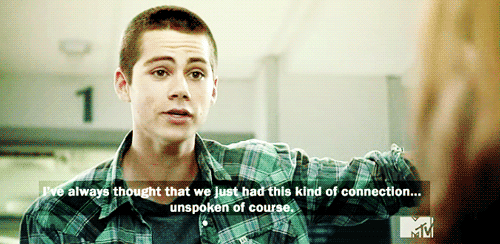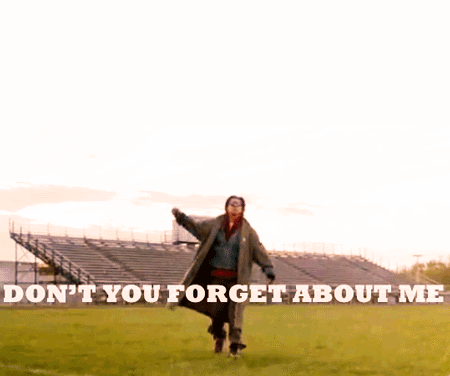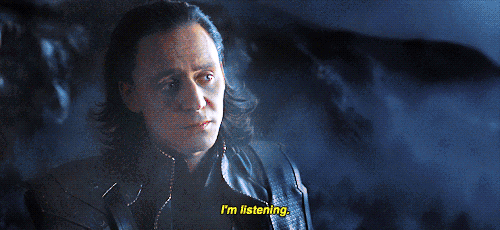Selecting the right courses is a nitpicky process, to say the least. Do all of your classes start after 11 a.m.? Do you have Fridays off? Can you get away with taking that music appreciation course instead of stats? Even with the perfect schedule in tow, one factor can make or break your semester: the professors. Our professors are responsible for blowing our minds with the wonderful world of academia, but they can be as difficult to navigate as the subjects they teach. To help you connect with your professors, CM consulted the masters themselves. As it turns out, they’re all just students at heart.
Why It’s Worth It

“Students often come seeking career advice about the difficult transition from school to work. Like all professors, I write countless references for job placement, internships and graduate education, and I try to identify outstanding work worthy of submission for writing awards. Many of these students have won awards for their work and several undergrads have published their findings in refereed scholarly journals.” – Alfred W McCoy, Ph.D., Harrington Professor of History, University of Wisconsin-Madison
“I have a philosophy about students: I don’t see them as my customers, I see them as my product. I produce a highly-specialized product – the business leaders of tomorrow – and I go out to consult and network on behalf of my students. If the businesses of the community see me as someone they respect, as someone with interesting and intelligent ideas, then they’ll be more willing to look at my students and they’ll come to me first for recommendations on students to hire.” – Melissa G Bublitz, Ph.D., Assistant Professor of Marketing, University of Wisconsin-Oshkosh
How to make a Connection

“I connect best with students that seem interested and engaged in the course. They show this by being prepared for class, participating in discussion, asking interesting questions and doing solid work on their papers and assignments. It doesn’t always mean that they’re getting the best grades or that they’re the best students, but they’re students that are actively engaged.” – Melissa G Bublitz, Ph.D., Assistant Professor of Marketing, University of Wisconsin-Oshkosh
“Connect with me by talking in class. I also appreciate it when students make use of my office hours to talk to me about their work.” – Irina Ruppo Malone, Ph.D., Assistant Professor of English, National University of Ireland, Galway
“Two words: Office hours. Some days the line is long and I have to double a two-hour session to four or five hours. But many days, at the start and end of the semester, there is no line. Every course raises a few questions, so drop by. For students with questions about the course or needing a reference, speak with the professor with the same directness you would a peer.” – Alfred W McCoy, Ph.D., Harrington Professor of History, University of Wisconsin-Madison
How to Stand Out

“Students that are actively listening, answering questions and participating in discussion are the ones that stand out. The students engaged both in and out of class make my job rewarding and interesting. I also like it when students bring in their own examples because it shows that they’re thinking more about the subject.” – Melissa G Bublitz, Ph.D., Assistant Professor of Marketing, University of Wisconsin-Oshkosh
How to Show You Care

“When you have multiple assignments and get feedback on the earlier ones, you need to apply that feedback to your subsequent assignments. Students who don’t are showing that this isn’t worth their time and they don’t care about how their work reflects on them. I don’t feel comfortable writing references for them. If I refer you and you’re mediocre, that’s a negative reflection on me and the type of potential employees that I produce.” – Melissa G Bublitz, Ph.D., Assistant Professor of Marketing, University of Wisconsin-Oshkosh
“It’s quite fair to ask for a professor’s response to preliminary ideas for an essay, should one be required for the course. Every semester I speak with a number of students suffering from emotional problems – alcoholism, depression and serious stress – who come nominally asking for an excuse, but are often seeking a sounding board, though I don’t think I’m exceptional in this regard. If students come with genuine problems, then it’s best to be blunt and state the facts.” – Alfred W McCoy, Ph.D., Harrington Professor of History, University of Wisconsin-Madison
Why Professors Do What They Do

“I like dealing with all sorts of challenges associated with small-group teaching. What to do when students are reluctant to talk, for instance. What to do if someone does not understand the text. And I love the texts I teach; they come to life in the classroom and that’s very exciting.” – Irina Ruppo Malone, Ph.D., Assistant Professor of English, National University of Ireland, Galway
“I enjoy interaction with the students. Their thoughts and comments; their take on the material and on life.” – Hazel Gilchrist, MA, Seminar Leader, National University of Ireland, Galway
“I love when real-world clients come in for my advertising class and the students blow them away. They put real time, effort, energy and creative thought into the project, and I get to know the students really well. It’s not a singular campaign that you can walk away with and implement, but a lot of ideas that reflect the creative potential of these young minds.” – Melissa G Bublitz, Ph.D., Assistant Professor of Marketing, University of Wisconsin-Oshkosh
“I love the performative aspects of lecturing to large classes. I really enjoy the discussions in small seminars. And it’s really exciting to work with undergrads doing independent studies, guiding them through the processes of conceptualization of a project, research, refinement and writing. My favorite part of teaching? All of it.” – Alfred W McCoy, Ph.D., Harrington Professor of History, University of Wisconsin-Madison
Parting Words of Wisdom: On Lectures and Life

“I expect participation. Without participation, the class just won’t work.” – Irina Ruppo Malone, Ph.D., Assistant Professor of English, National University of Ireland, Galway
“Come prepared. Don’t just read the book or memorize the terms, but think of examples applicable to everyday life. Become engaged learners with a desire for continued learning. Thinking critically about the subject matter equates to a thirst for knowledge.” – Melissa G Bublitz, Ph.D., Assistant Professor of Marketing, University of Wisconsin-Oshkosh
“Anything goes, and therefore anything might happen. This is neither a problem to be solved nor merely something to be learned, but rather an area to be entered, explored, inhabited and above all, enjoyed.” – Hazel Gilchrist, MA, Seminar Leader, National University of Ireland, Galway
“This should be an adventure, a voyage of discovery.” – Alfred W McCoy, Ph.D., Harrington Professor of History, University of Wisconsin-Madison



















